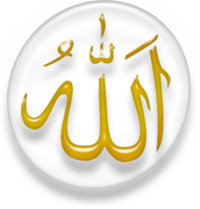User:Afghana~enwiki/ConstitutionIslam

This is an early work in progress, anyone and everyone is free to develop this. Right now, we need to reference to actual Wikipedia policies to back these ones up, and word this in a more careful manner. Some points are just incorrect and should be revised.
This is the Constitution of WikiProject Islam. The mission of WikiProject Islam is to ensure that Islam-related articles on Wikipedia are written according to the Three Points:
- 1. encyclopedic style,
- 2. in a neutral and non-sectarian manner,
- 3. using verifiable and reliable scholarly sources.
The scope of this WikiProject is to improve the quality and quantity of information about Islam available on Wikipedia.
Introduction
[edit]The purpose of this document is to further standardize the writing and editing of all information related to Islam on Wikipedia, including but not limited to articles, templates, and images. This document has no binding authority except those who ratify it through their signatures. Once signed, in theory its members are bound by its precepts when it comes to the development of articles on Islam, and gain both the right to introduce amendments and vote either for or against them.
Volcabulary
[edit]This defines the volcabulary used through this constitution. It has no meaning outside this constitution.
The Three Points
[edit]Encyclopedic style
[edit]Single topic
[edit]Articles are about a single topic, though those topics may have a broad range of information. A topic should not be defined by what it is not, but rather but what it is. For example:
Incorrect: Shi'a, unlike most Muslims, believe in a concept called ismah.
Correct: Shi'a believe in the concept of ismah.
Transliterations & names
[edit]When referring to Islamic prophets, one should refer to them by their English names. Example: Moses
A normal a sound should simply have the letter a. Ta' marbuta however should have ah.
ي (Ya) should be represented with the English letter Y, because they have both function as consonants and vowels similarly.
The following are either accurate transliterations are the transliterations commonly used in the English language:
- Muhammad
- Hasan
- Husayn
- Ali
- Fatimah
Don't add an s to make these words plural:
- Shi'a
Incorrect: Shi'as believe
Correct: Shi'a believe, The Shi'a believe - Twelver
Incorrect: Twelvers believe
Correct: The Twelver believe, Twelver Shi'a believe - Ismaili
Incorrect: Ismailis believe
Correct: Ismaili believe, Ismaili Shi'a believe - Zaidi
Incorrect: Zaidis believe
Correct: Zaidi believe, Zaidi Shi'a believe
No honorifics
[edit]Honorifics are not allowed in articles or templates, save within direct quotations where they are included in the source. However, there is no issue in using them on personal or talk pages.
Templates
[edit]Templates like the articles themselves should be decorated and designed in a way that expresses the culture of Islam or of a specific movement. One should refrain from generic templates, much like one would refrain from articles without images, but templates should also maintain an encyclopedic tone and style.
Neutrality and non-sectarianism
[edit]Pictures
[edit]Pictures in general should be used sparingly on Sunni articles not because of censorship, but so a reader does not get the impression that Sunnism in general allows pictures, or has a culture of pictures. However, there is no limit on how pictures should be used in Shi'a articles, with the exception to Zaidi. Keep in mind the following:
- Pictures of Prophets are prohibited in mainstream Sunnism.
- Pictures of Prophets and Imams are not prohibited in mainstream Shi'asm, though among a few scholars the issue remains controversial.
This is not to support censorship, but rather understand how we should approach presenting Islamic topics in general.
Verifiability and reliability
[edit]Hadith
[edit]Hadith cannot be used as citations, but may be quoted, if a reliable second party source quotes them. They should be used sparingly. A similar policy should be adopted towards other biographical works of Muhammad.
